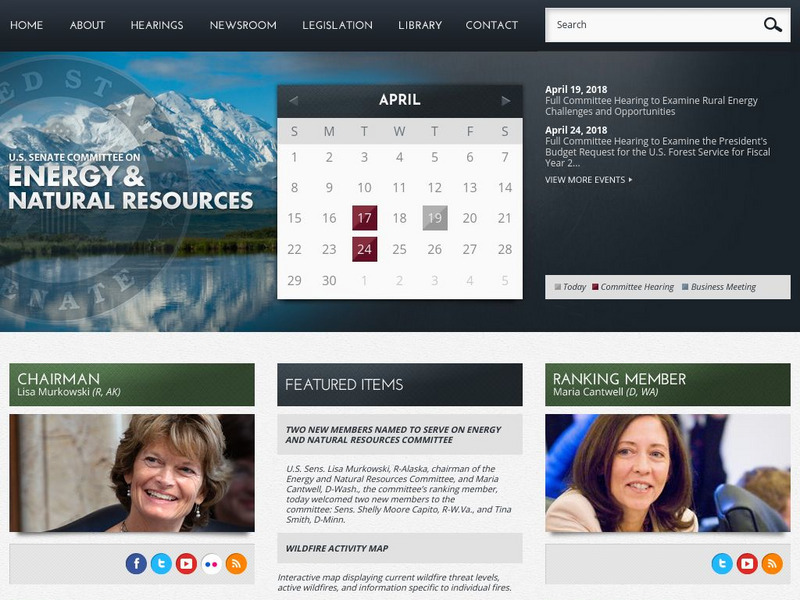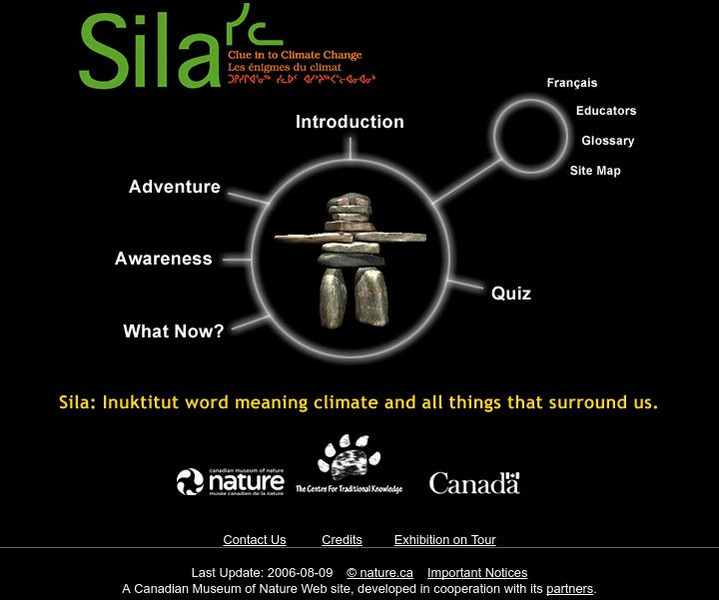Hi, what do you want to do?
Curated OER
Hurricane Katrina Relief
Students research philanthropic organizations that helped after Hurricane Katrina. They organize a collection drive to contribute to the nonprofit organization. They reflect on their efforts.
Curated OER
Cycling Energy
Fourth graders are introduced to how electricity is produced. In groups, they compare and contrast the linear production of energy with other forms of mechanical energy production. They try to make a turbine work acting like it is part...
Curated OER
Save Our Soil
Young scholars explore the need for good farm land and reasons for the disappearance of agricultural areas. They brainstorm environmental friendly decisions and soil conservation. In their community, students explore new land...
Curated OER
Making New Electricity
High schoolers investigate the concepts of energy conversion and conservation. They research the history of energy conversions into electrical energy. They design experiments in order to replicate a conversion of energy into electricity.
Curated OER
Who Can Harvest A Walleye?
Seventh graders investigate the concept of how an ecosystem is put together while conducting research using a variety of resources. They correctly differentiate between a herbivore and carnivore by placing them in the order of hierarchy...
Curated OER
Geography and World History
Pupils build off of their current knowledge of geography and world history, while being introduced to new concepts and ideas.
Curated OER
Polymers and Crystals
Students experiment with crystals and polymers and examine their roles in food science.
Curated OER
Making Paper
Fourth graders investigate the paper usage in their classroom and in other countries by using estimation, counting, and measurement skills. They make paper from recycled paper.
Curated OER
Groundwater: Cleaning Up
High schoolers research the various aspects of groundwater contamination that threaten health and human safety. They create a model and display that informs other about the health and safety risks. Students illustrate ways in which these...
Curated OER
Making Paper
Young scholars make paper from recycled paper. The student estimates, counts, and measures he amount of paper consumed in a classroom daily. They discover that if we use too much paper, it fills up landfills. Some activities they are...
Curated OER
On the Road Again": Moving People, Products, and Ideas
In this lesson students learn how to identify modes of transportation and communication for moving people, products, and ideas from place to place. Students also study the advantages and disadvantages of different modes of...
Curated OER
Settling Nroth America: Improvisation and Playwriting
Students map the classroom by marking the movement of the first Americans' migration from Alaska down into North America. To improve their skills in map-reading and sense of direction, students identify physical features of the map and...
Curated OER
Caterpillar Habit
Students watch a caterpillar change and become a butterfly. In this lesson about the life cycle of a caterpillar and a butterfly, students prepare and maintain the habitat of the caterpillar. Students observe the stages of the...
Curated OER
Oil Trap Model
Students investigate oil accumulation by creating a model in their classroom. In this petroleum geology lesson, students discuss where oil comes from and why it is vital to our society at this particular time. Students cut out a 3-D...
American Museum of Natural History
American Museum of Natural History: What Is Water?
This comprehensive article provides information about the physical properties of water, the importance of water as an Earth material, the processes and cycles that water undergoes on Earth, its importance to life on Earth, and why we...
TeachEngineering
Teach Engineering: Can You Catch the Water?
Students construct a three-dimensional model of a water catchment basin using everyday objects to create hills, mountains, valleys and water sources. They experiment to see where rain travels and collects, and survey water pathways to...
BioEd Online
Bio Ed Online: Can Nutrients in Water Cause Harm?
Many different kinds of organisms live in water. Excess nutrients can cause over-abundant growth of some organisms living in water and non-point source pollution is a major threat to water supplies in the United States. In this lesson...
TeachEngineering
Teach Engineering: Engineering for the Earth
Young students are introduced to the complex systems of the Earth through numerous lessons on its natural resources, processes, weather, climate and landforms. Key earth science topics include rocks, soils and minerals, water and natural...
PBS
Pbs Learning Media: Primary Source: Environmental Preservation Progressive Era
This collection uses primary sources to environmental preservation in the Progressive Era.
TeachEngineering
Teach Engineering: Water, Water Everywhere
Young scholars learn about floods, discovering that different types of floods occur from different water sources, but primarily from heavy rainfall. While floods occur naturally and have benefits such as creating fertile farmland,...
Other
Nc Department of Energy and Natural Resources: What Is Stormwater Pollution
When it rains, some of the rainwater soaks into the ground, and part of it flows over the ground and directly into creeks, streams, or rivers. This water that runs off into the river is called runoff, or sometimes stormwater runoff....
US Senate
U.s. Senate Committee on Energy and Natural Resources
The responsibilities of the Committee on Energy and Natural Resources oversees important legislation in Congress and has distinguished itself as among the most nonpartisan in the Senate.
PBS
Pbs News Hour Extra: Tracking the Health Effects of Natural Disasters
Students examine the impact of natural disasters, such as flooding, on public health, and study diseases and other secondary conditions associated with stagnant water. Lesson includes resources for students to research epidemics and...
Canadian Museum of Nature
Canadian Museum of Nature: Sila: Clue Into Climate Change
The Arctic is where climate is changing at a faster pace than any other place in the world. Explore Water, Earth, Fire, and Air to investigate the basic elements that support all life and learn about the impact climate change is having...


























